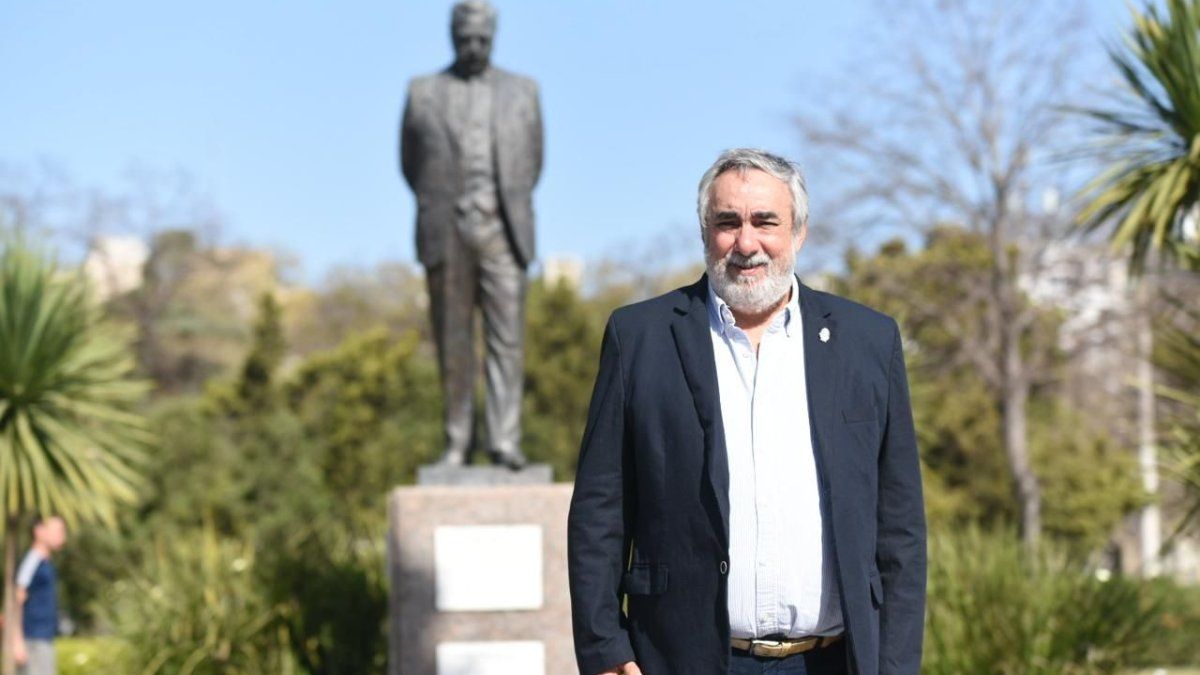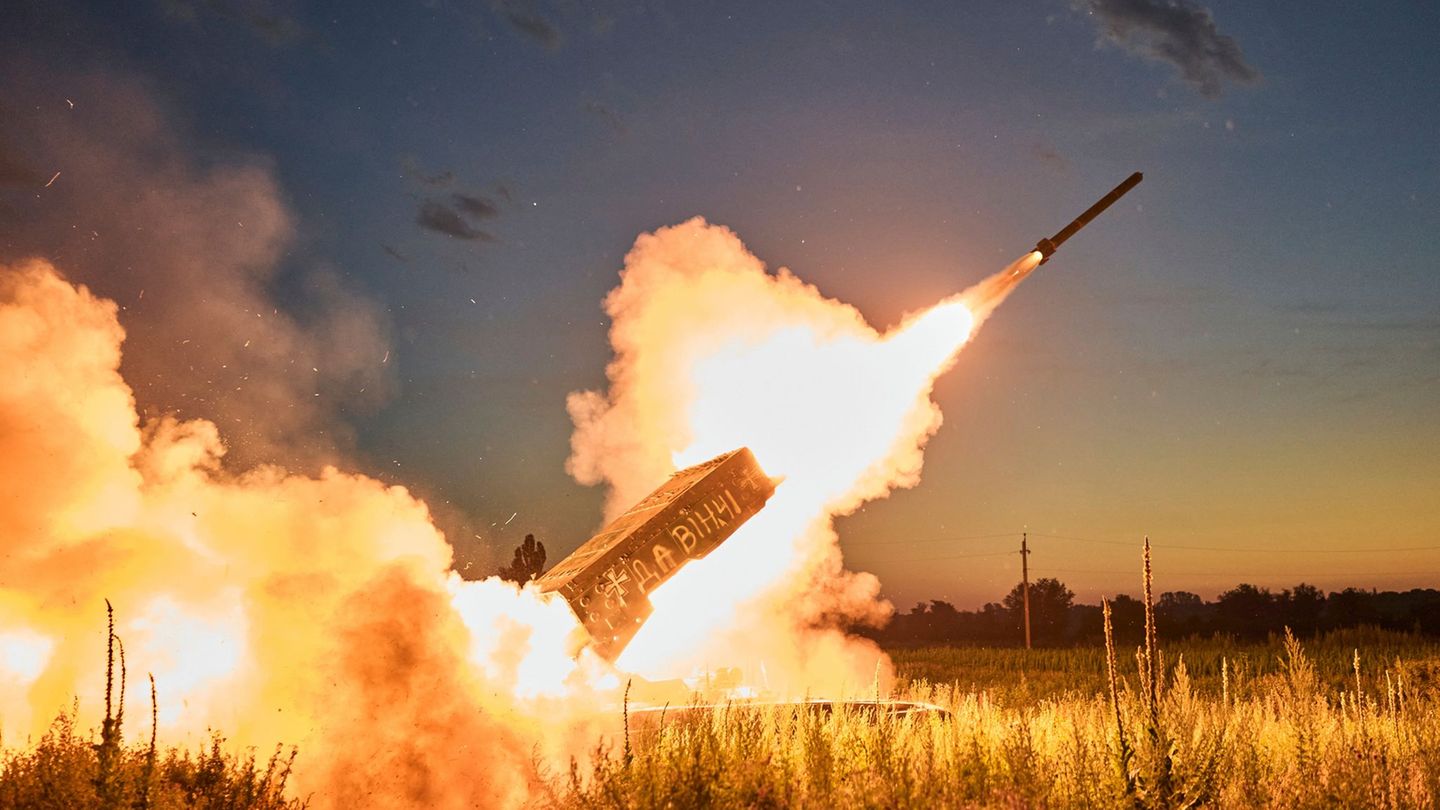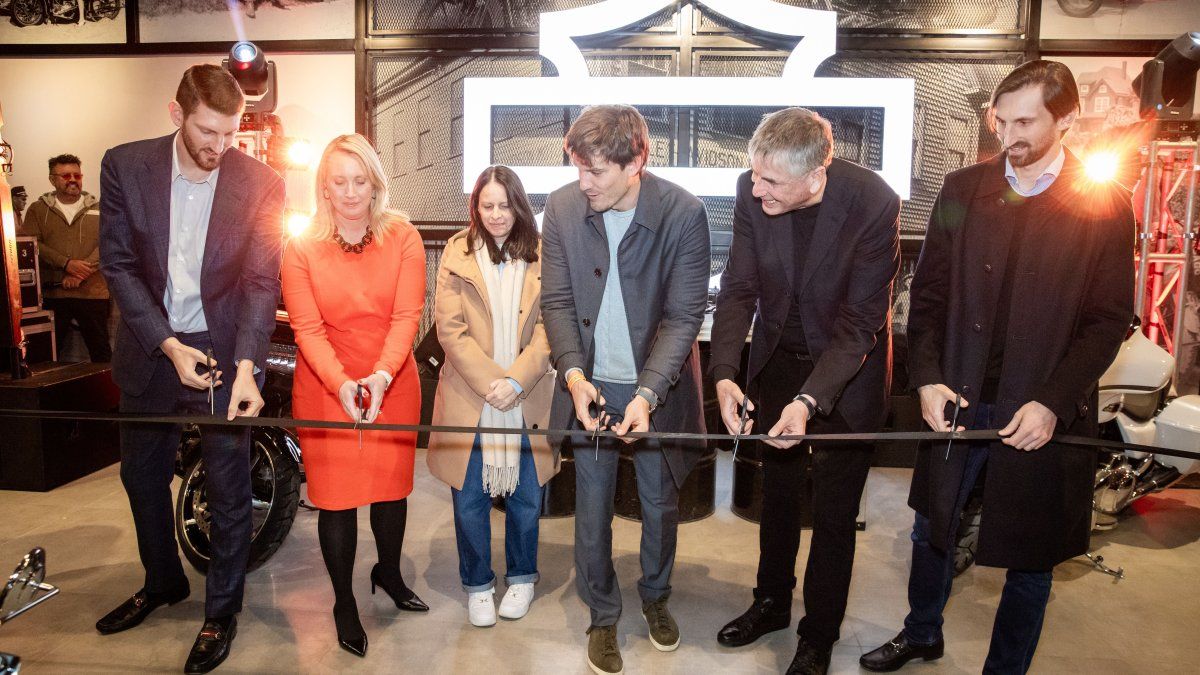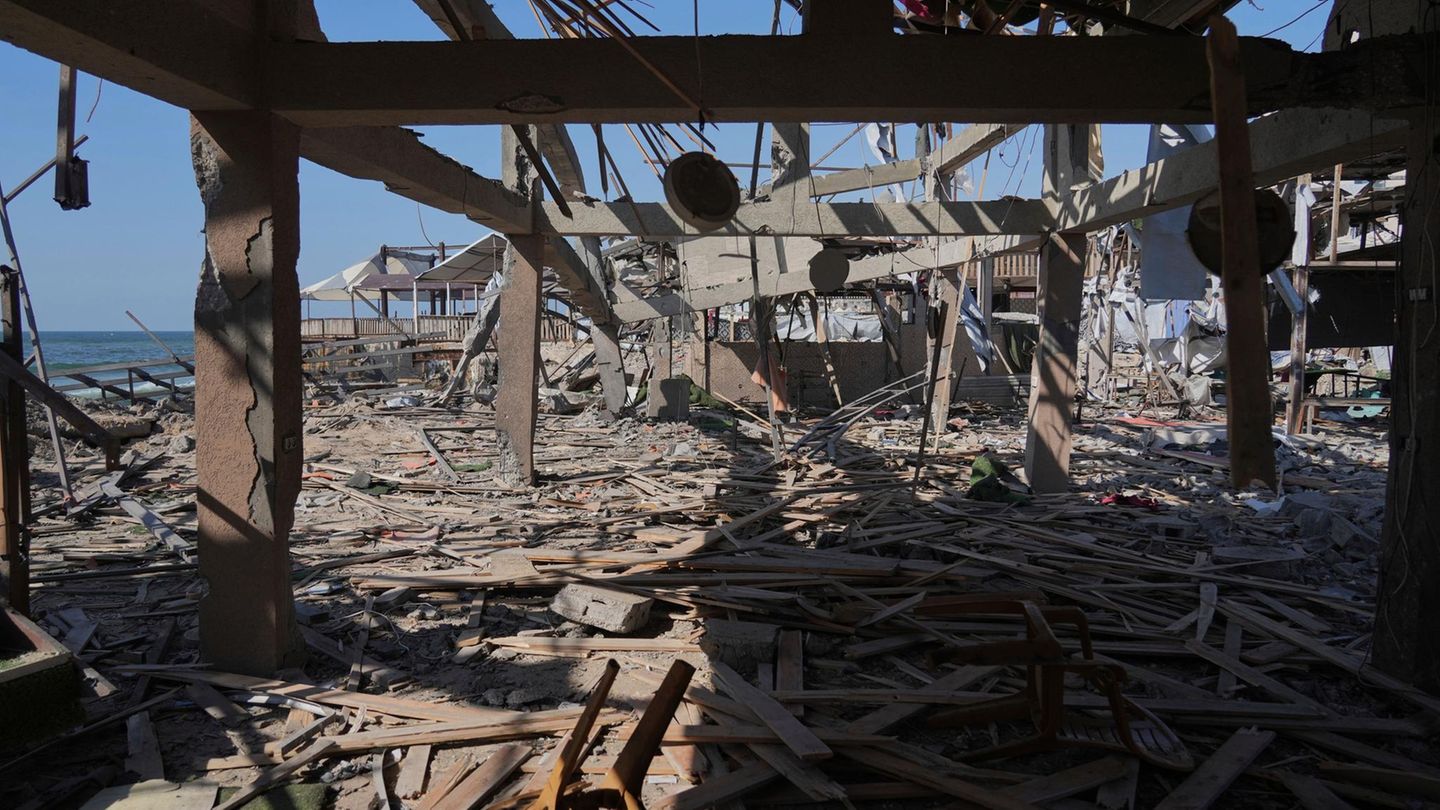Journalist: Your list had the support of national senator Maximiliano Abad, 20 mayors and 60 former community leaders. Did the member vote for that management?
Miguel Fernández: Without a doubt. There is a radicalism that is genuine and is eligible. People vote for us, recognize us in our towns and greet us when we leave. We are not suspected, we have efficient, balanced and neat administrations. This radicalism is very powerful in the country, but it has to reach the decision-making levels. The mayors, the governors, the legislators are important. All of this makes up a work team. After a deep discussion, which is what is missing in the party, it is transformed into an electoral and government proposal. That doesn’t come alone, you have to work for it.
Q: Whose will is missing?
MF: Of the leaders. For that, you have to have clarity of ideas, humility to listen and work hard. In this task, I will have exclusive dedication. I have no other function. I am willing to take the car and go town by town and to the suburbs to work a lot because a clearer project is missing.
miguel fernandez ucr
Miguel Fernández was mayor of Trenque Lauquen.
Q: Did they call you to congratulate you from the opposition list?
MF: Some yes, provincial legislators enrolled more in the Manes sector, recognizing the victory. Others don’t, especially those most linked to Evolution. It would be a contradiction for them to call me since they appealed in court, even in the second instance.
Q: What imprint will you seek to give to your management in the party?
MF: We have to talk a lot with the territories, with the people, with the affiliates. How they interpret the moment that we are going through, how they perceive the situation in the province and in the Nation, the new scenario with Milei, his complex relationship with Axel Kicillof and what radicalism represents today. We cannot live on past glories, nor on our dead. We have our historical references, but we must build an alternative, modern project adjusted to current times. It is essential to discuss it with the territories, I intend to relate to radicalism from all over the country. Radicalism lacks visibility from governments. There is a radicalism that has to do with national references and the legislative chambers, but there is another that is very strong in government management: more than 400 mayors and 5 governors. A radicalism that is elected by the people and re-elected, that is successful and does not have the visibility it should have. That is political construction work that we are going to do. It is key, because if not it is like there is an enormous amount of provincial radicalism, but it is not consolidated at the national level.
Q: Will you call on the leaders of Futuro Radical to join the project of the new Buenos Aires Committee?
MF: They are obliged, because to form the new plenary session, once the justice system resolves in the second instance what we do with Quilmes, La Matanza and Ezeiza, the new leadership will be formed. In that plenary session, the sector on list 15 must be integrated, they must be part of the new plenary session. We’ll see if they agree to take over, but they should.
Q: The Radical Civic Union is criticized for having given the president tools in Congress to govern. This generated a rupture in the bloc of national deputies and in the Buenos Aires legislature. Is your space close to La Libertad Avanza?
MF: That is an unnecessary and false discussion. They are individual positions of some leaders who have personal projects and who seek to capitalize on this issue for their own benefit. The discussion goes deeper. We have to have contact with the bases and members to determine what they expect from the party in the new scenario that Milei poses, a phenomenon unknown to politics. There is a lot of debate missing. I don’t think there is a wig radicalism, nor do I think there are radicals willing to embrace Kirchnerism. First, we have to think about who we are and what we think, not only as leaders but with the people. There are leaders who believe themselves to be such, but they turn around and have no people to follow them. We need a lot of debate about what the country needs. They tell us “they guaranteed the Base Law to Milei.” With that criterion, we can be accused of guaranteeing governability for Axel Kicillof. Radicalism has an institutional responsibility. We are opposition, but we are not stupid. There are things that must be accompanied. I am very critical of most of the things Milei does, but others are necessary. Individual positions of leaders are seen that sometimes are not representative.
Q: How should the UCR play for 2025 and 2027? Is there an alliance with Together for Change (JxC)?
MF: JxC as such actually disappeared. No one gave him a death certificate, but it was extinguished due to the actions of some and others. Patricia Bullrich left with Milei without consulting anyone, there are PRO legislators who are very comfortable with LLA and the UCR is very far from that. Legislative agreements do persist in deliberative councils and municipal government teams. That’s today. What is the construction between now and 2025? We’ll have to see it. We have to talk a lot, first ourselves.
Q: There is a debate coming up in the province about the electoral issue. What do you think about the Single Ballot, the possibility of splitting elections, and suspending the PASO and the law that limited indefinite re-elections?
MF: It is a super complex debate. When we talk about legal security, it also has to do with the fact that the letter of the laws cannot be changed every three years, for convenience or political agreements that are foreign to the people. On a personal level, I believe that I would not change the issue of the PASO and that the re-election should continue as it is. Unfolding is probably something opportune.
Q: Are you going to work to recover party unity?
MF: Without a doubt, giving all the debates that need to be given. It must be intense, in good faith, without chicanery, without demagoguery. It is a good time to rethink many things about what we would do if we were the government.
Q: Do you still believe that it is possible to reunify the blocs into deputies?
MF: That will be my first challenge. First you have to talk. I’m going to contact the other block. The official bloc is the one led by Diego Garciarena, which does not mean that we will talk after the electoral process is over. You have to talk and understand the other.
Miguel Fernández.jpg
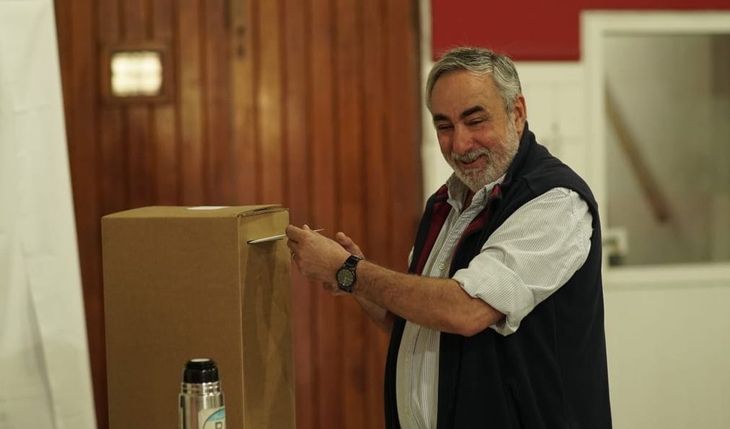
Miguel Fernández, during the Buenos Aires UCR elections.
Q: How do you see Milei’s management?
MF: He received a country on fire and has a certain margin of action due to the support of society. People were tired and that’s why they voted for him, angry. I don’t agree, but he proposed an exorbitant adjustment in the campaign, he didn’t lie, and the people voted for him. People were fed up with the economic disasters. There are macroeconomic indicators that give people some hope for now. I’m not very optimistic, but inflation is going down at the cost of a huge recession, which is hitting people and the microeconomy. We will see over time if this model can be sustained and how it will develop and recover the micro. For now there are more questions than certainties. We have to think about how we build alternatives. Politics is so hyperpolarized between what Milei and Cristina Kirchner propose, which is the business of polarization on one side and the other. Those who are not at any extreme do not have visibility, clear proposals: return to the status quo ante or go to an alternative that reforms the state, that achieves efficient administration of public resources, that achieves institutional stability, that provides certainty. I imagine a more balanced alternative than the current one.
Q: And what do you think of Kicillof’s administration?
MF: Kicillof’s first administration, during the presidency of Alberto Fernández, was overshadowed by the pandemic. He had an enormous amount of discretionary economic resources, a lot of money. That gave him slack. Now, there is a second stage with manifest lacks of resources. There is a serious problem for the people of Buenos Aires: what Milei does with the province ends up being paid by the people of Buenos Aires, not Kicillof. The one who gets screwed at the end of the road is the Buenos Aires native. The province has enormous deficits, which have to do with a discussion about co-participation and the resources that correspond to the province. Buenos Aires is the largest province, the one that contributes the most, where there is the most poverty. There is a more or less efficient administration fee, but there is a lack of resources. When more resources arrive, we can evaluate whether resource management was more or less efficient.
Source: Ambito
I am an author and journalist who has worked in the entertainment industry for over a decade. I currently work as a news editor at a major news website, and my focus is on covering the latest trends in entertainment. I also write occasional pieces for other outlets, and have authored two books about the entertainment industry.

